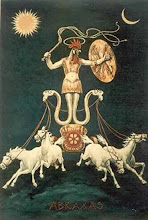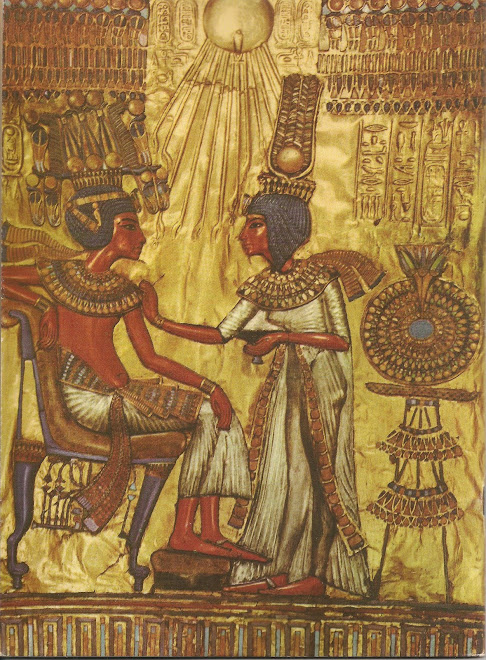sexta-feira, 19 de novembro de 2010
As Profecias Do Apocalipse (Cracking the Apocalypse Code)
Info About The Book Subject & Related:
The Book of Revelation is the final book of the New Testament. The title came into usage from the first word of the book in Koine Greek: apokalypsis, meaning "unveiling" or "revelation" (the author himself not having provided a title). It is also known as the Book of the Revelation of Saint John the Divine or the Apocalypse of John, (both in reference to its author) or the Book of the Revelation of Jesus Christ (in reference to its opening line) or simply Revelation, (often dubbed "Revelations" in contrast to the singular in the original Koine) or the Apocalypse. The word "apocalypse" is also used for other works of a similar nature in the literary genre of apocalyptic literature. Such literature is "marked by distinctive literary features, particularly prediction of future events and accounts of visionary experiences or journeys to heaven, often involving vivid symbolism."[1] The Book of Revelation is the only apocalyptic document in the New Testament canon, though there are short apocalyptic passages in various places in the Gospels and the Epistles.[2]
Contents
1 Authorship
1.1 Early theories
1.2 Traditional theory
1.3 Modern theories
1.4 Dating
1.5 Canonical history
2 Content
2.1 Text reconstruction
2.2 Literary structure
2.3 Narrative criticism
2.4 Figures in Revelation
3 Outline
4 Interpretations
4.1 Religious interpretations
4.1.1 Eastern Orthodox interpretation
4.1.2 Paschal liturgical interpretation
4.1.3 Seventh-day Adventist interpretation
4.1.4 Esoteric interpretation
4.1.5 Radical discipleship interpretation
4.1.6 Paschal spiritual interpretation
4.2 Aesthetic and literary interpretations
4.3 Academic interpretations
4.4 Criticism
5 Old Testament origins
6 See also
7 Notes
8 References
9 External links
( extract source: http://en.wikipedia.org/wiki/Book_of_Revelation )
Apocalypticism is the religious belief that there will be an apocalypse, a term which originally referred to a revelation of God's will, but now usually refers to belief that the world will come to an end time very soon, even within one's own lifetime. This belief is usually accompanied by the idea that civilization, as we know it, will soon come to a tumultuous end with some sort of catastrophic global event such as war. Apocalypticism is often conjoined with esoteric knowledge that will likely be revealed in a major confrontation between good and evil forces, destined to change the course of history. Apocalypses can be viewed as good, evil, ambiguous or neutral, depending on the particular religion or belief system promoting them. They can appear as a personal or group tendency, an outlook or a perceptual frame of reference, or merely as expressions in a speaker's rhetorical style.
Contents
1 Jewish apocalypticism
2 Christian apocalypticism
2.1 Jesus' apocalypticism
2.2 Year 1000
2.3 Domesday Book
2.4 Fifth Monarchy Men
2.5 Isaac Newton and the end of the world in 2060
2.6 Millerites and Seventh-day Adventists
3 Apocalypticism in Islam
4 Apocalypticism in contemporary culture
4.1 UFO Religions
4.2 Y2K
4.3 Harold Camping and his 2011 end times prediction
4.4 Mayan calendar 2012
5 See also
5.1 General
5.2 Christian premillennial apocalyptic writers
5.3 Apocalyptic movements
5.4 Millenarian cults
6 Further reading (chronological)
7 References
( extract source: http://en.wikipedia.org/wiki/Apocalypticism )
( http://www.amazon.com/Cracking-Apocalypse-Code-Gerard-Bodson/dp/1862047308 )
Marcadores:
apocalypticism,
books,
divination,
gematria,
Gérard Bodson,
prophecies,
qabalah,
the end is near,
theology
Subscrever:
Enviar feedback (Atom)




.jpg)
.jpg)









+001.jpg)
+001.jpg)

+001.jpg)










+001.jpg)
+001.jpg)






+001.jpg)
+001.jpg)
+001.jpg)

.jpg)



Sem comentários:
Enviar um comentário
Nota: só um membro deste blogue pode publicar um comentário.